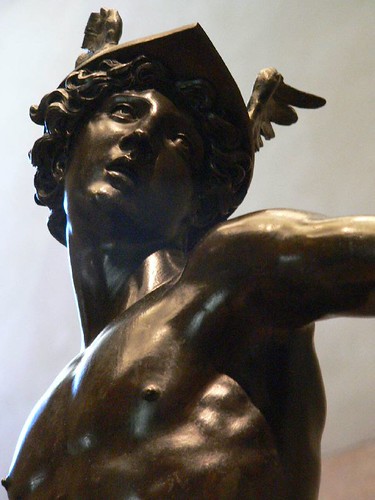mercurial
Anything mercurial is characterized by the rapid or unpredictable changeableness of one's mood. It also might mean something is more directly related to the element, the planet, or the mythological messenger god. Sometimes all of these at once. The general adjective and the element are no doubt named for the god Mercury's ability to change places so quickly. The element was once called quicksilver, because it looks like moving, living, moody silver.
Quicksilver by Keith Moseley at flickr
Mercurial seems to best describe April 2013, half-spent as it is. Living in the middle of the continent, we've seen March and April change their moods frequently from calm, halcyon days to blustry wintry ones. Snow and rain have been competing for territory this week, leaving us in a state of jaded confusion: I thought we were done with winter! Look, there are flowers! It shouldn't be snowing when there are flowers! What is wrong with this world? Global warming! Well, I say. At least it's wet. Perhaps we've finally begun to turn this neverending drought around.
I'm not a climatologist, and this is not a science blog, although I can say our fears about weather, climate and our inability to properly harness them make for great science fiction. Spring has a temper in general: it has good days and bad days: the lion and the lamb; blizzards, tornadoes and thunderstorms; sunshine, daffodils and birdsong. This month is absolutely and indeniably alive. I'm sure February is mighty jealous. And May will be especially glorious when all calms down!
Mercury by Mary Harrsch




